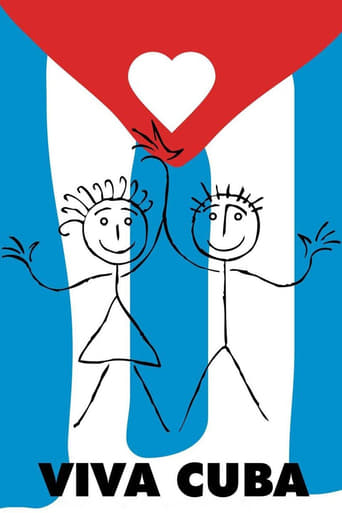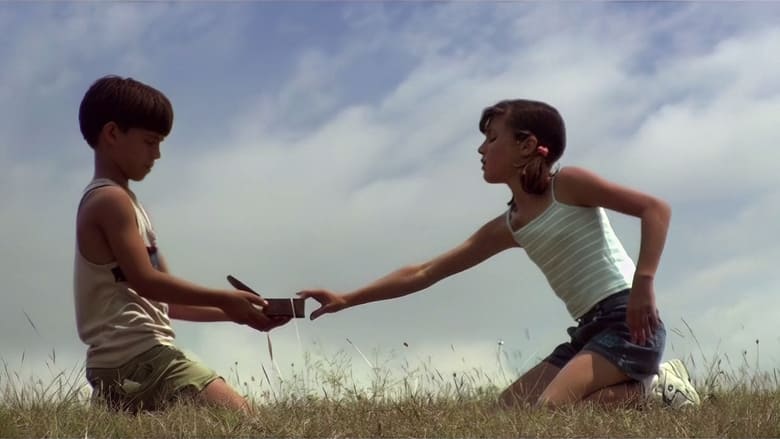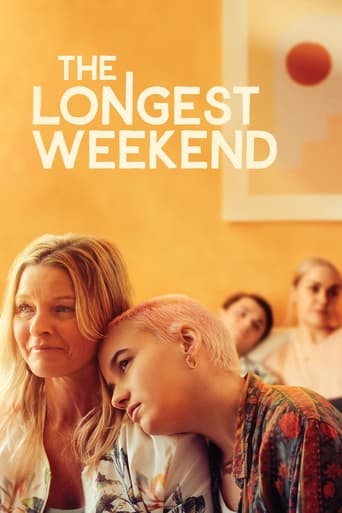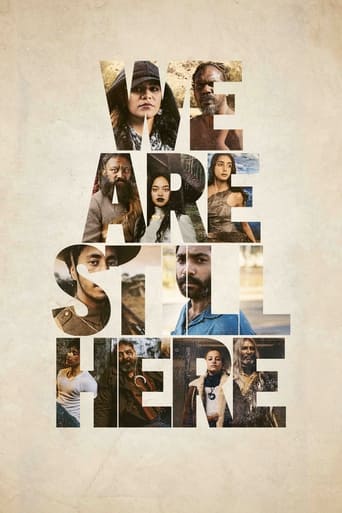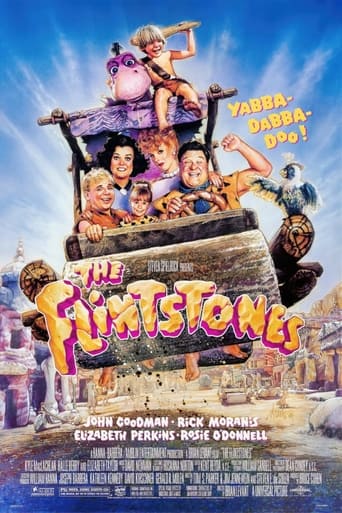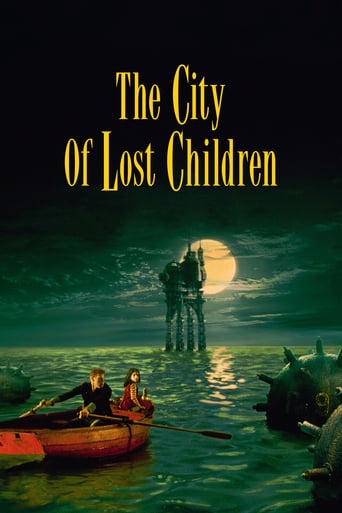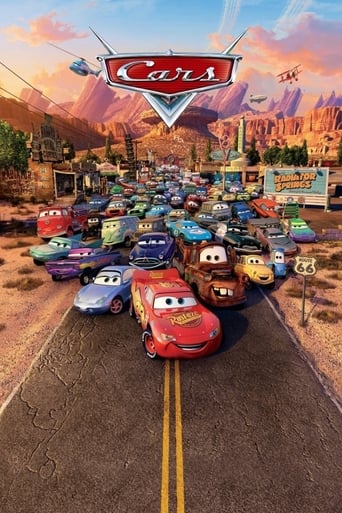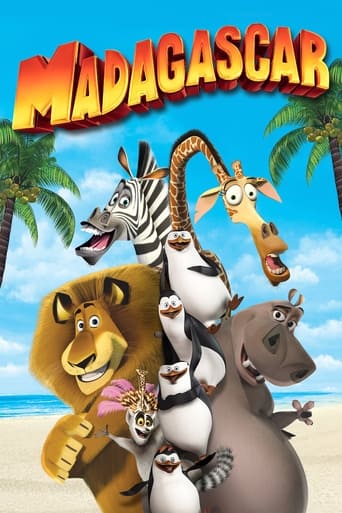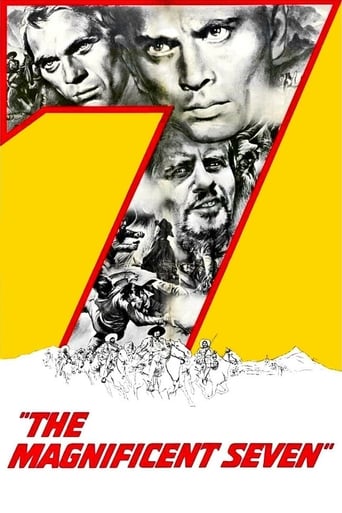Viva Cuba (2005)
The friendship between two children is threatened by their parents’ differences. Malú is from a family that was upper-class before the Revolution and remains well-to-do through remittances from relatives overseas, and her single mother (Larisa Vega Alamar) does not want her to play with Jorgito, as she thinks his background coarse and commonplace. Jorgito’s mother (Luisa María Jiménez Rodríguez),
Watch Trailer
Free Trial Channels
Cast


Similar titles
Reviews
Wonderful character development!
terrible... so disappointed.
This is one of the few movies I've ever seen where the whole audience broke into spontaneous, loud applause a third of the way in.
It's a movie as timely as it is provocative and amazingly, for much of its running time, it is weirdly funny.
Simple story of a two runaway kids, raising lot of questions about Cuban society and it's system. It has an underline story line which contradictory to the film title Viva Cuba (Long live Cuba). Through out the film we see the patriotism and quotes like "Viva Che", "Viva Cuba" being thought to the kids like a religion, yet the distance and loosing their dreams in the system. In capitalism parents run "the race" distancing them from their kids and family. The same happens in Socialism where the parents prioritizing their duty to the country before their family. In both the situations it collapses the basic building block of the society. It is an open ending but leaves us thinking can a system make the life better. Can it answer the basic problems of life, or no matter what life will always find a way to make it miserable.
By title, and by the knowledge of where this movie was produced, many who watch movies might be turned off, or suspect of the film's quality at best. The first Cuban film I've seen, I went in with expectations that were shattered by a, dare I say, cute and heartwarming tale of friendship and the human spirit. I know that people are people no matter where they live, and a liberal at heart. Even for me, this is the last place I would have expected to look for such a story, and one of the last things I would expect to result in a few tears.Immediately, the story disarms us of political prejudice, with a scene of boys, including Jorgito, one of two protagonists, playing the Cuban version of Cowboys and Indians in the street. They happen upon a girl of the same age, Malu, and we see Jorgito and Malu having the first of their several arguments, those reminiscent of old married couples. Malu wants to play Queen of Spain to which Jorgito objects, setting up the dichotomous relationship we learn of with their families, and I would assume countless more in Cuba.Jorgito's and Malu's relationship is shown developing throughout the first act, something between childish/flirty teasing and puppy love. Antagonism is introduced when Malu's mother plans to marry and leave the country, resulting in one of the most touching scenes in any movie, let alone one for children, with both children sitting on a roof overlooking Havana, discussing the situation. By the time we see Malu turning, unseen, to face Jorgito, borders are nonexistent. Friendship is the great equalizer. I was Jorgito and have always been.The two run away and set out on a journey from Havana to southeast Cuba, to find Malu's father and prevent him from signing the paperwork that would allow Malu to leave Cuba. The scenes comparing/contrasting their lifestyles and routines in packing and in preparing "for school" that morning are the funniest part of the film, which isn't short on good laughs throughout.The emotion invoked by "Viva Cuba" and the universality of feeling expressed in the dialog ("When I grow up I want to be in charge; to do what I want." and "If I were in charge I would let kids do what they want.") within the story's context is tactfully darling. In terms of story, "Viva Cuba" stands up to American children's films about friendship, such as "Up" and "Wall-E," even more true and raw from the protagonists' perspective (quite literally, as the camera angles are set low and we are presented with a few glimpses into their imaginations), as this film almost completely eschews the realities of the adult/real world until they come crashing (lightly) down at the ending with the friends' bond unaffected.The movie takes you through Cuba, but does not make you feel like you or the characters are under an iron thumb or not free. It doesn't promote or glorify the country either. With a rare backdrop, it presents a personal struggle against confinements and misfortunes that are commonly experienced the world over.
This is a wonderful, engaging movie. The movie is completely carried by two ten year old child actors. We see the world completely through their eyes. They are both cute as monkeys, and charming as all get out. They both have expressive faces and lively bodies that constantly surprise and entertain. I was instantly charmed and instantly taken in to care intensely that all should work out for them.We see the adults through the children's eyes, mainly as people to interfere with fun and who are cruel for no reason.The movie is in Spanish with subtitles. This causes some problems, the two mothers look much alike and behave much alike, though one is a snobbish Catholic and the other a snobbish Communist. I found it hard to keep track of who was saying what.The two children, even though one is a boy and one a girl, have similar sounding voices. I often got confused trying to figure out which of the two said what.The story is largely about their adventures running away to find the girl's father. Almost like the fairy tale The Snow Queen, they meet all manner of eccentric characters on the way.There a few corny/hammy scenes, where the director told the kids to do something that adults think kids do, but they would never do, like hold hands and skip or shake hands. Their never-speak-again fight vaporised a bit too quickly for my credibility.As the movie progresses, I kept wondering what plot device could possibly be used to bring this story to a requisite sunny end. I could not think of one. Neither could the writers. They stuck on very strange ambiguous ending. I left me saying What the? It is very unsettling. These lovable kids deserved a happy-ever-after.Maybe the director wanted the kick the squabbling parents in the teeth for their self-centredness.
With Cuba having been hidden behind an almost impenetrable veil of isolation and politics for the past 60 years, Viva Cuba provides American audiences with a unique insight into Cuban society. Rather than repeat ploy summaries already mentioned in other reviews, my focus instead will be on its implications for American film-goers in particular. This is approached from the perspective that the majority of Americans have a very limited knowledge of Cuban politics, immigration policies, and the island nation's economic history over the past 20 years.Having spent much of my life in the Miami area during the 80s and 90s it can be accurately assumed that my vision of Cuba is tinted by the international politics of the region's Cuban exile community. This is not to say that either side is right or wrong but simply a statement that when I envision freedoms in Cuba it is much different than what is portrayed in this movie. For example, when Malú's Mother is talking to her fiancé on the phone an American would assume that her line is tapped and that her statement that she hates Cuba because " everything is illegal here" would result in her arrest. However, that is the furthest thing from the case. After Malú and Jorgito disappear the authorities are incredibly courteous and helpful. The simple fact that two small children can travel unimpeded for over 650 miles across Cuba. This is an amazing feat in and of itself. It also challenges the commonly held notion that travel is severely restricted and a network of omniscient eyes are watching your movements at all times.Another challenge to the existing paradigms about Cuban society is that of the government's immigration policies. The process of women marrying men in other countries in order to leave Cuba is central not just this film but also Juan Carlos Tabío's 2000 "Lista de Espera". Coming from an area where many of the recent Cuban arrivals risked their lives in any makeshift floating device they could find, the immigration policies in these movies are certainly a revelation. In fact, a quick Google search shows thousands of websites in both English and Spanish providing legal advising on this process. The paradigm that states that immigration is only possible through defection or sailing north to the Florida Keys is clearly inaccurate.Viva Cuba also provides some interesting insights into the economic conditions of modern Cuba that may or may not be based in reality. With the collapse of the Soviet Union the Cuban economy virtually collapsed in on itself. Known in Cuba as the "Special Period", these years represent some of the bleakest moments in the island's recent history. The island had become an import-based economy relying on its sugar and tobacco production to provide all of its basic good. With their greatest trading partner gone the Cubans people faced their biggest crisis to that point. With the worst years of Cuba's "Special Period" lasting from 1991-1995 the effects are, by all accounts, still being felt to this day. However, in the movie "Viva Cuba" one would not know that the island's economy had collapsed a decade earlier. While the buildings are certainly old and have seen better days, other scenes challenge our views of Cuba. Most notably is when we see Malú and Jorgito on the busy road. New, modern cars and trucks whiz by. The old clunker from the 1950s that eventually stops to give them a ride seems almost anachronistic, as though this is a relic of a by-gone Cuba. The long, panoramic shots of the two children walking on beaches with sunsets in the background almost seem to be taken from a tourism bureau's collection of stock footage. A message is being portrayed here and this is the economic troubles are over, Cuba has entered the new millennium, and it is open for your tourist dollars.Whether we view this movie as an endearing tale of love, friendship and struggle or we view this movie for its insights into a society closed to most Americans the fact remains that this is an excellent movie. Sure, the special effects are not on par for the majority of jaded American film goers. The acting tends toward almost "telenovela"-esque histrionics at times. However, in the end this is a charming movie worthy of any viewer without regard to their politics or geographical location.

